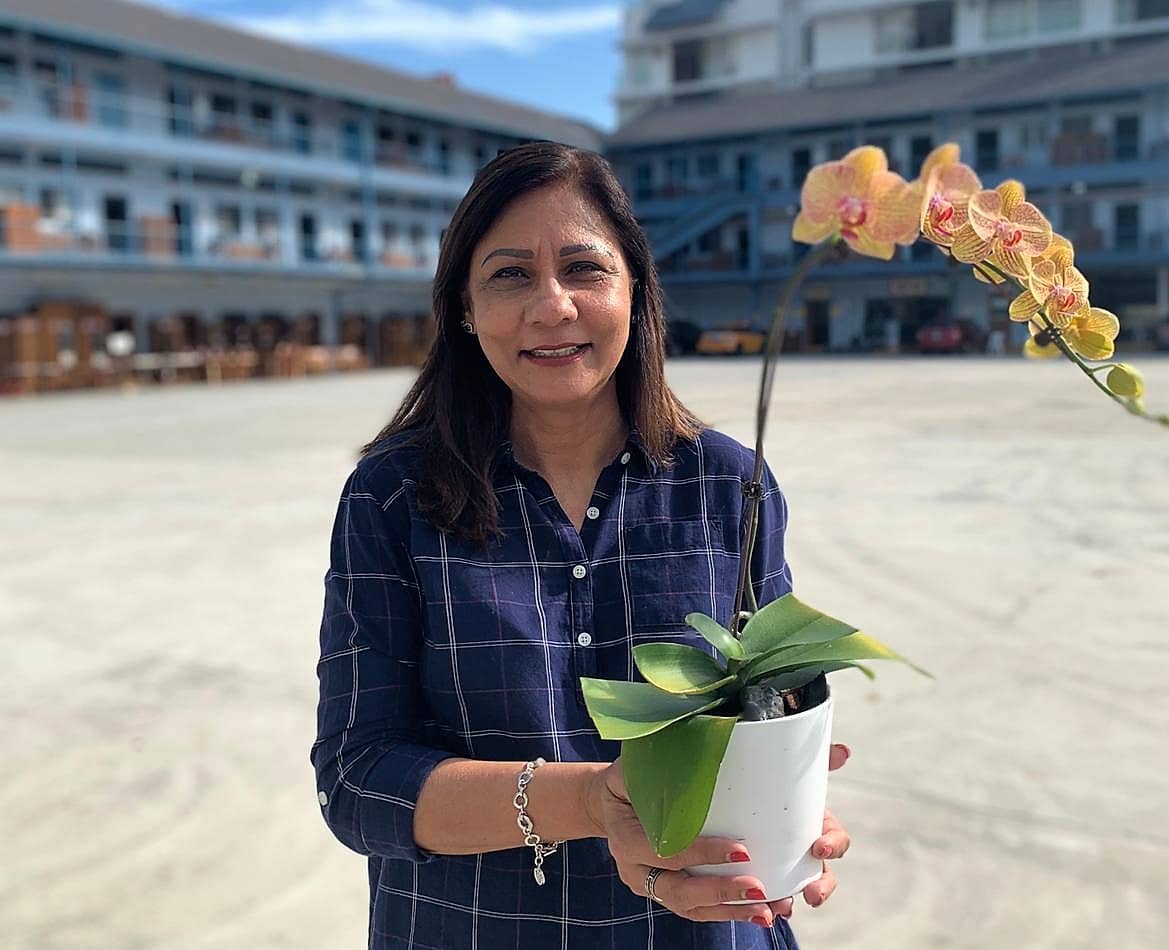Ranjit Kaur did not have a good relationship with her own family, especially not with her own mother.
She and her younger sister “couldn’t have friends or communicate with anyone”.
“We couldn’t go out,” she said.
“I was looking for love. Coming from a traditional family with strict parents, you don’t get love because you are a girl.”
“I had only two Punjabi dresses to wear, and only one pair of shoes and one bag.”
They were not allowed to wear jeans either.
When Kaur started working at age 16, her salary went directly into her mother’s bank account. She was not allowed to have any money of her own.
“I ate breakfast at home and my mum would pack lunch for me. We couldn’t eat what we wanted,” she recalled.
Kaur, now 55, resorted to working from 7am to 11pm. Just so that she could stay away from home as much as possible.
Looking for love
She was 20 when she was introduced to Ranjit Singh, then 24. It was love at first sight.
“He was very loving, very caring,” she recalled. “He would call me and check up on me: Did I have my breakfast? Did I get home safely?”
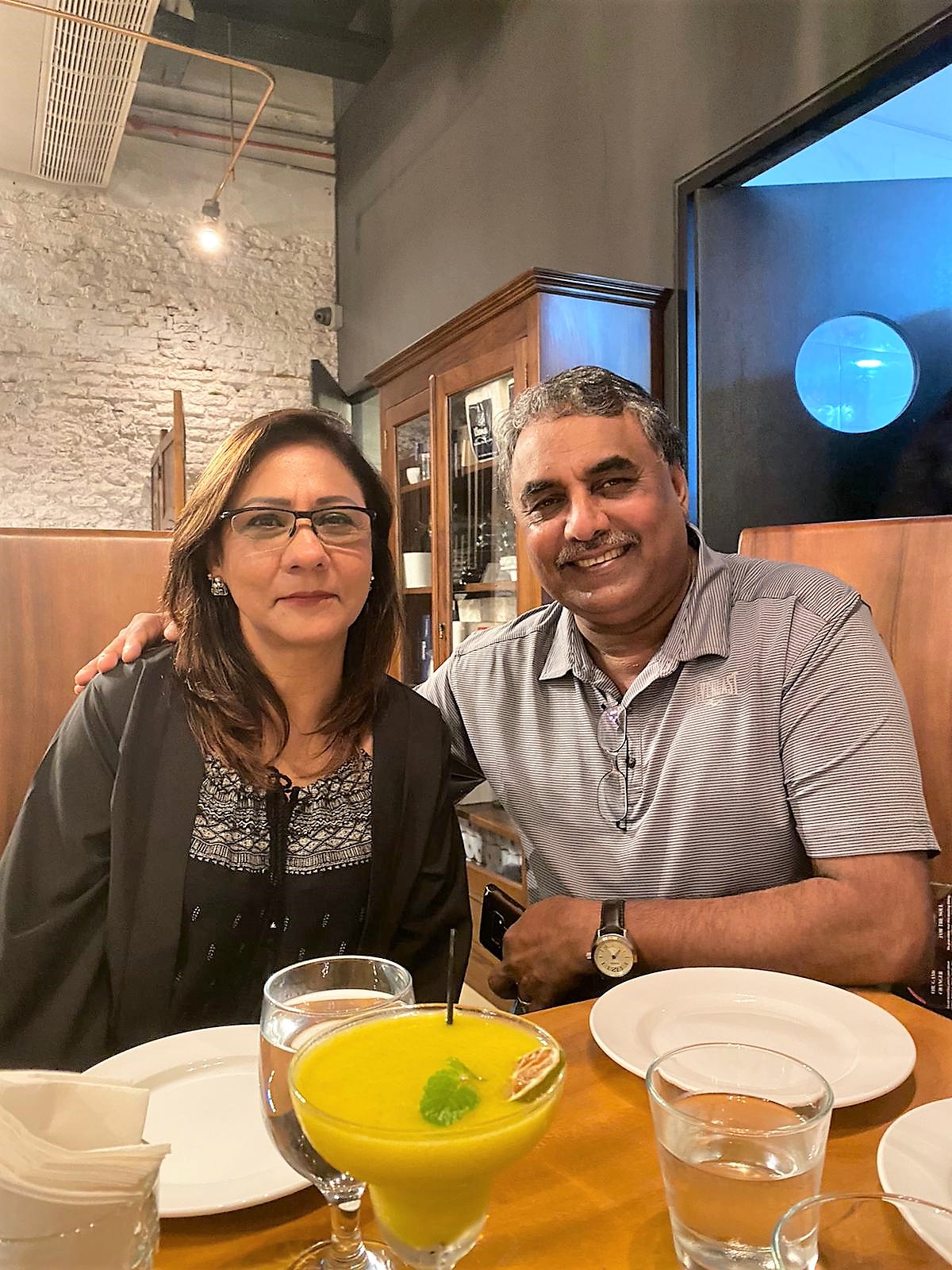
Ranjit Kaur was 20 when she met Ranjit Singh, 24. She did not know that he was addicted to drugs at the time. All photos courtesy of Ranjit Kaur unless otherwise stated.
Looking back, Kaur realises why the attraction was so strong.
“I was looking for love. Coming from a traditional family with strict parents, you don’t get love because you are a girl,” she explained.
Hopelessly devoted to him
Within months of dating, Singh got arrested for drug consumption and was sentenced to nine months in jail.
“I was searching for him and his brother told me he was in prison,” recalled Kaur.
“I told him I wouldn’t leave him. Everybody should be given a second chance.”
Up till then, she had no idea her boyfriend was a drug addict. Back then, she had no clue how a person acts and looks when he is addicted.
She visited Singh in prison.
And even though he gave her a chance to break up with him, she told him she wouldn’t leave him.
“Everybody should be given a second chance,” she believed.
Kaur admitted that she was naïve. She did not know that getting out of drug addiction could be so difficult.
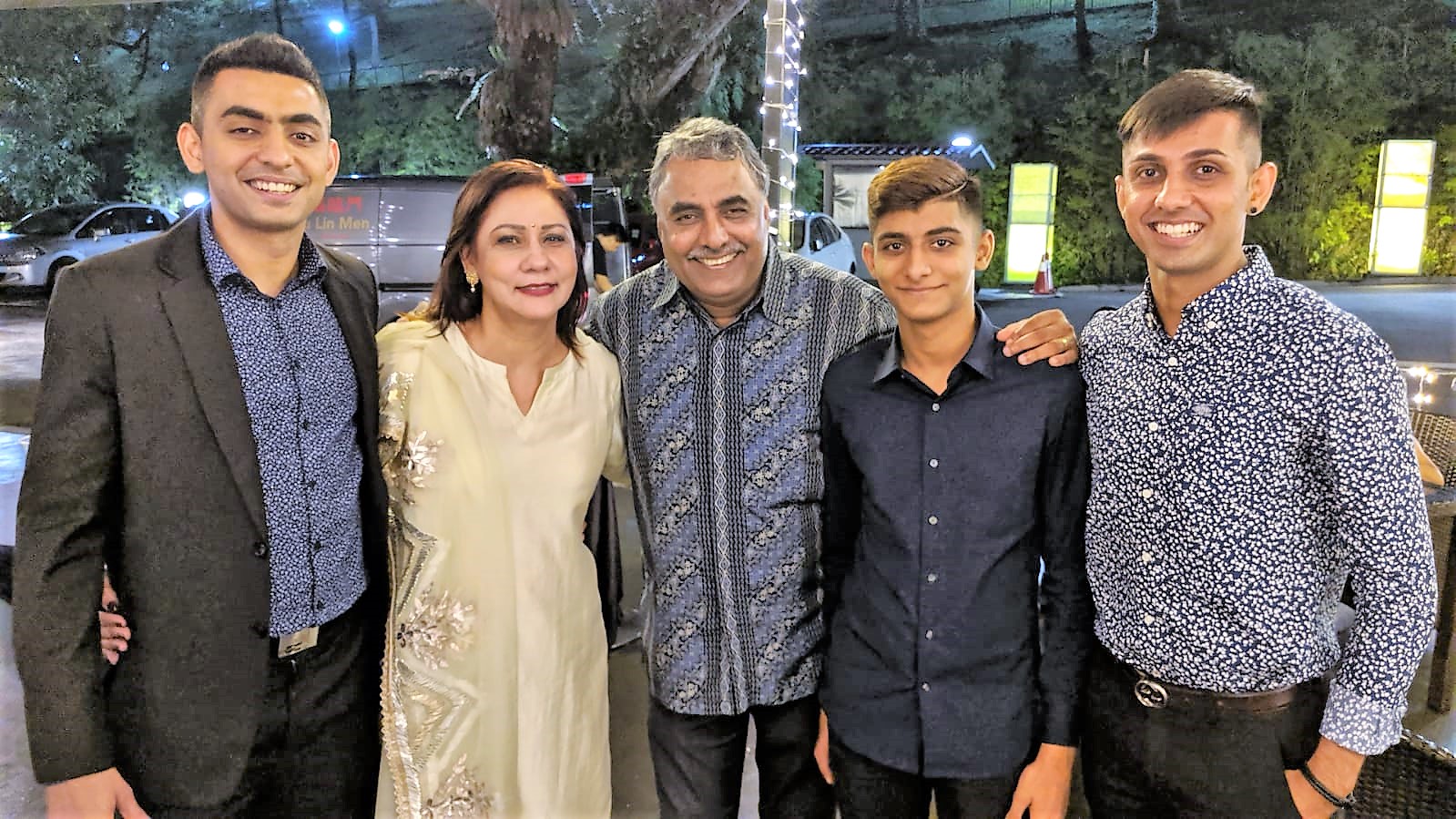
Kaur (2nd from left) and Singh (centre) with their sons who are now (from left to right) 32, 16 and 29. When one of their sons went through a rebellious stage, “going out in the night, drinking, fighting, mixing with the wrong people and not doing well in school”, Singh spoke to him. “My son realised that his friends would not always be there for him.”
Her own father used to drink alcohol, but he gave it up the moment he developed high blood pressure.
“I had thought: If my dad can change, other people can change too,” she admitted.
Kaur decided to come clean to her family. She told her father she was in love.
“They were devastated that something like that could happen when they had been so strict,” she said.
“I was thinking: Either she takes me in or I will commit suicide.”
Her mother then arranged to ship her off to India to be married.
But Kaur ran away from home in the dead of night. She only had 10 cents on her – just enough money to make one phone call.
With it, she called her future. mother-in-law.
“I told her that I had left my house. I was thinking: Either she takes me in or I will commit suicide.”
Thankfully, the older woman let Kaur live with her family.
When Singh was released from prison, the two registered their marriage. She was 21 and he was 25.
A rocky marriage
Getting married did not bring the freedom Kaur had hoped for.
Her mother-in-law was just as strict as her mother. On top of going out to work, Kaur was expected to cook and clean, and pack meals for her father-in-law to take to work every day.
When Singh was 12, schoolmates introduced him to smoking. It progressed to drinking. By 14, he was doing drugs.
Singh was back on heroin. Kaur had no friends. But no, she did not blame her husband.
“When your parents are so strict, there is no communication, no love. He was looking for love too,” she said.
Singh had been a timid, quiet child who did not have many friends. When he was 12, schoolmates introduced him to smoking. It progressed to drinking. By 14, he was doing drugs.
“It made him feel better when he drank and took drugs. He had more friends. So he continued,” she said.
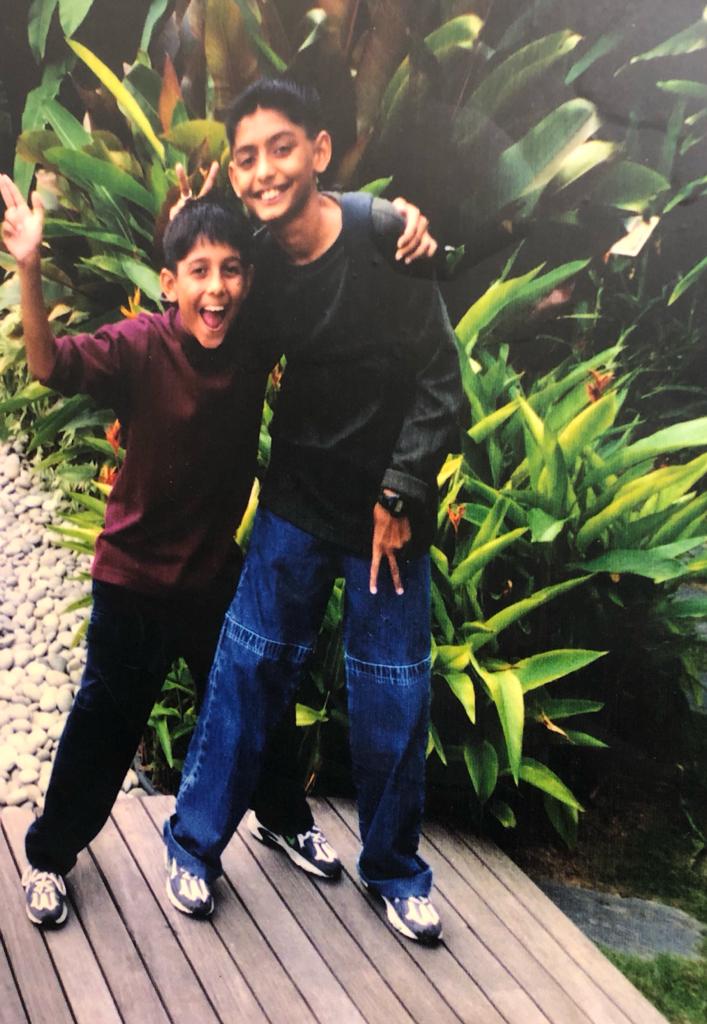
When Kaur was pregnant with their second child, she gave her husband an ultimatum – get clean or she would leave. He went into rehabilitation at The Helping Hand to kick his habit before the baby was born.
Their first child came along a year into their marriage but fatherhood did not change him.
“He stole from home. All my jewellery was gone.”
“When someone is on drugs, they become very self-centred, they can’t understand anything around them,” she explained.
“The addiction takes over them fully. Drugs is like a disease, like cancer.”
Singh’s had closed his carwash business when he was imprisoned. He now worked odd jobs but the little he earned went into funding his drug habit. He stole when his daily-waged job as a courier could not pay for the drugs.
“He stole from home. All my jewellery was gone,” said Kaur.
Flyer in the public toilet
Despite their financial situation, the young couple managed to buy an HDB flat so they could build their own life outside the strict confines of Singh’s family.
But Singh continued to be addicted to heroin even though he wanted to quit.
“At times, I had to borrow money from my boss. Colleagues would buy lunch for me.”
At the last resort, the couple sought spiritual help. They visited the temples of different religions and went to Malaysia to consult mediums.
But to no avail.
Kaur took a second job because her husband was so drug addicted that he could no longer hold down a job.
Her first job did not pay well. The money went to her husband’s addiction and expenses for their son.
“At times, I had to borrow money from my boss because my husband took my money. Colleagues would buy lunch me,” she said.
Then the police turned up at their door because Singh failed to pay his parking fine and road tax. Soon, narcotics officers also showed up. To avoid them, each moved back to their parents’ homes.
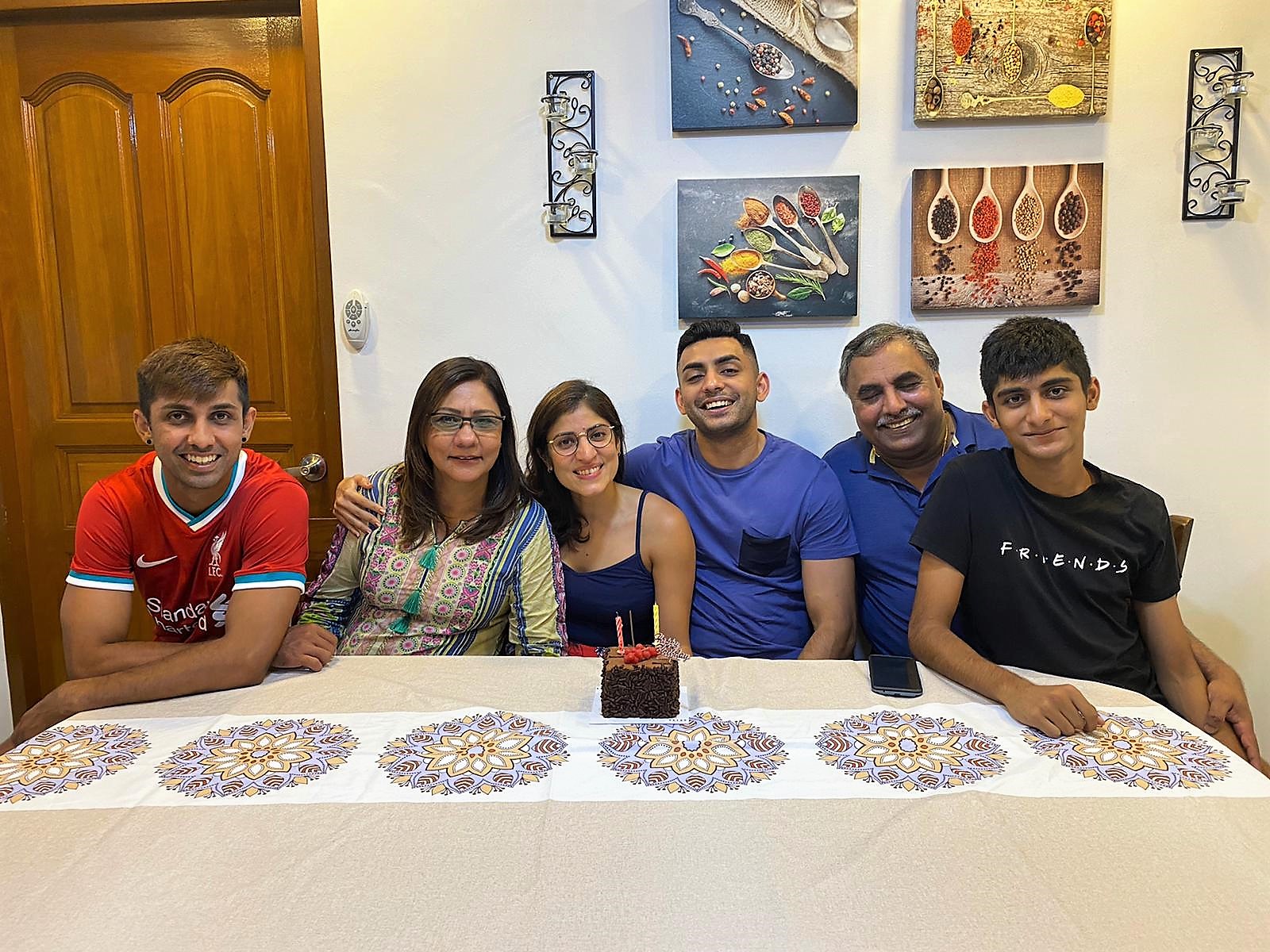
Kaur (second from left) and Singh (second from right) with their sons and their future daughter-in-law (third from left). Their sons have successfully stayed away from drugs. “They also get their father to talk to friends who are in trouble with drugs,” said Kaur.
When Kaur became pregnant with their second child, she knew she had to do something drastic.
“I told him, ‘I think we have to part ways because I can’t have you with me and not being of any help.’”
Then something unexpected happened.
Singh was smoking heroin in a public toilet when he saw a flyer about a cocaine addict who had kicked the habit. This former addict was going to share his testimony of how God had transformed his life.
Singh was smoking heroin in a public toilet when he saw a flyer about a cocaine addict who had kicked the habit.
Desperate, Singh attended the talk at a church.
“He crying when the preacher was talking,” said Kaur.
A member of the church approached and befriended Singh.
“My husband told this man, ‘I’m on drugs. I need help.’ And this man looked for help for him.”
The man introduced Singh to halfway house The Helping Hand (THH) – where Singh’s life would change. Now, 29 years later, the two men are still friends.
A helping hand
After enrolling in THH’s stay-in programme, Singh called his wife and asked for one last chance.
It was a request Kaur had heard many times before.
She relented and visited him every Sunday.
“I had no choice. I had no friends, no parents to support me. I only had him,” she said.
“When he told me that he had given up drugs, I couldn’t believe it.”
As the weeks turned into months, Kaur started to see a change in her husband.
“When he told me that he had given up drugs, I couldn’t believe it,” she said.
“But then I saw him healthy, looking good, taking care of himself. He was so different.”
The change came when her husband had decided to accept God and put Him in the centre of his life.
“It took me three to four years to believe that he had really changed because how could this God actually change someone’s life?”
Her husband also stopped going to places that would trigger his addiction.
Says Kaur: “For a few years, if he wanted to go out, he would ask me to follow him. He didn’t want to meet his old friends or be alone in places that would trigger him to take drugs again.”
Living simply
When Singh graduated from the programme in nine months, he wanted to get a job to support the family.
But Kaur convinced him to stay on at THH as a helper. She did not mind that he would only be getting a modest allowance if he could remain drug-free. She had seen how beneficial the programme was.
“He had tried to kick the habit at home but it was impossible. He could get drugs easily.
“At THH, there are people around him, counselling him, talking to him. There are devotions, prayers, Bible reading. He needed that. It cannot happen outside,” she knew.
By then, Kaur had stopped working to care for their two young sons.
“At The Hiding Place, there are people around him, counselling him, talking to him. He needed that.”
To supplement Singh’s income, they rented out a room of their HDB flat. THH founder Robert Yeo gave Singh a motorcycle so he could get around cheaply. An anonymous donor gave the family $200 a month for five years. Singh was also allowed to bring lunch and dinner from THH home for his family.
The family learnt to live simply. There were no shopping sprees, and outings were trips to the playground. Kaur put her children in cloth nappies in the day and toilet-trained them to save on diapers.
“People asked me how we survived. It was just God’s grace. God is really good,” she said.
“Our bills were always paid, we were happy that there was food to eat. We were contented.”
The car ride
Kaur started attending church each week with her husband. He was a Christian but she still had her concerns about becoming one.
“I was afraid of what my community would think of me. I was already an embarrassment because my husband was a drug addict,” she admitted.
“If I gave up my religion to become a Christian, I would be an embarrassment to my parents.”
“They didn’t know me, yet they loved me so much. They didn’t care that my husband was a drug addict.”
Three years later, the couple were in a car on their way home from a church camp in Malaysia with a pastor and his wife.
The pastor spoke with Kaur.
“He shared Bible verses about how God died for our sins, who God is and where we go when we die,” Kaur recalled.
“By the time we got to the Singapore customs, I said, ‘Okay, I’m ready to become a Christian.’”
She was touched by the love the pastor and wife showed her.
“They didn’t know me, yet they loved me so much. They didn’t care that my husband was a drug addict,” she said.
“When I was in trouble, who was there for me among the people I knew? Nobody. So why should I care what they thought?”
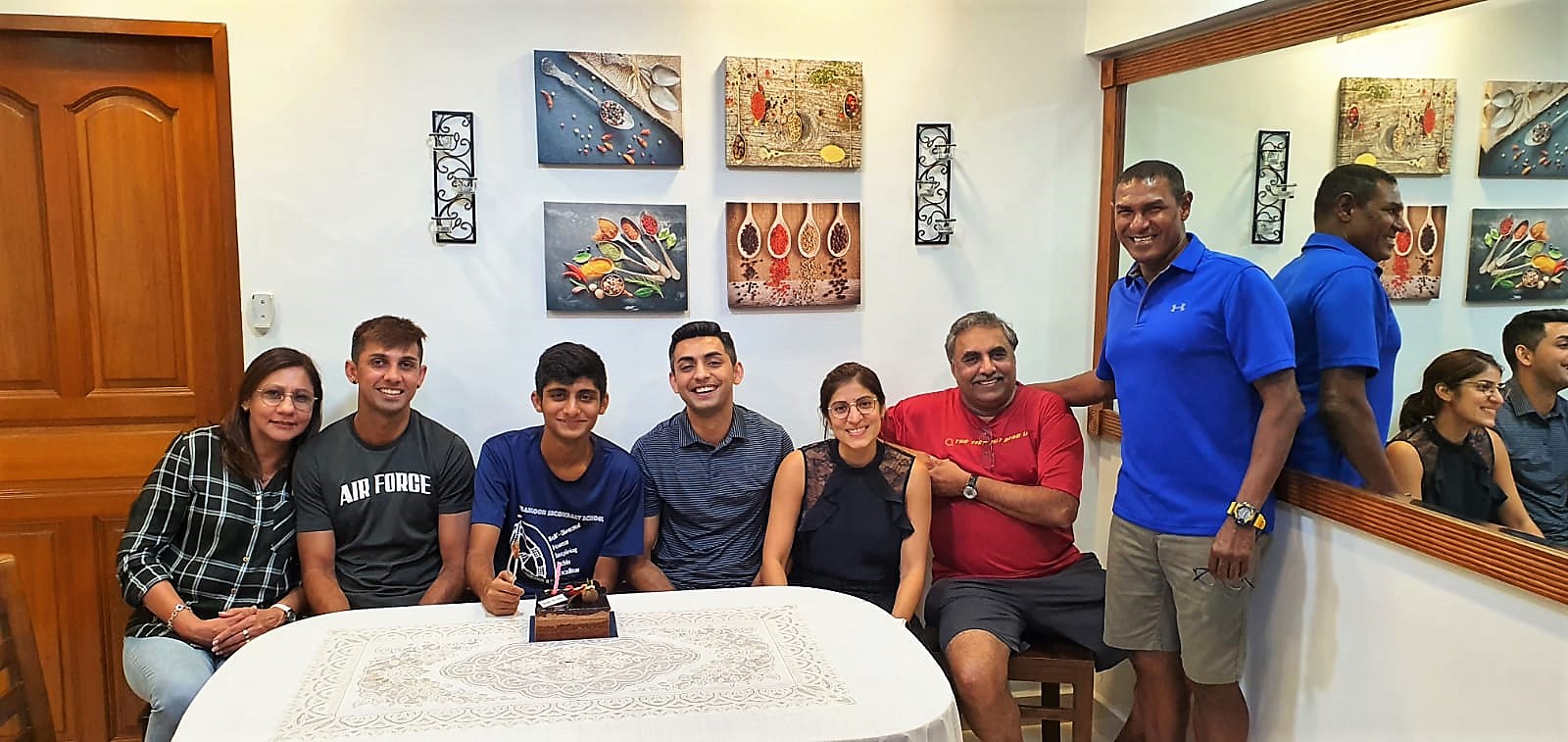
The family with Kaur’s colleague (far right) from THH whom they befriended.
In time, Kaur started working at THH as a business manager. She is currently in charge of their orchid sales to raise funds for rehabilitation programmes for former drug addicts.
At the halfway house, she reaches out to some of the residents on her own time, listening to them, counselling them and, sometimes, sharing hard truths from her own family’s experience.
Her difficult journey supporting her husband’s battle against drugs has given her a deeper understanding of the struggles of addicts. Her faith in God has given her a special capacity to love.
“I was hurt and angry, very vengeful,” she said.
“Knowing the true, living God transformed my life.”
This is an excerpt of an article that first appeared in Salt&Light.
Click here to join our Telegram family for more stories like the Kaur family’s.
His dad once told him to jump from their HDB flat. What healed their relationship?
I was marked absent for all my O’Level subjects … I was that deeply involved in drugs
I was marked absent for all my O’Level subjects … I was that deeply involved in drugs
